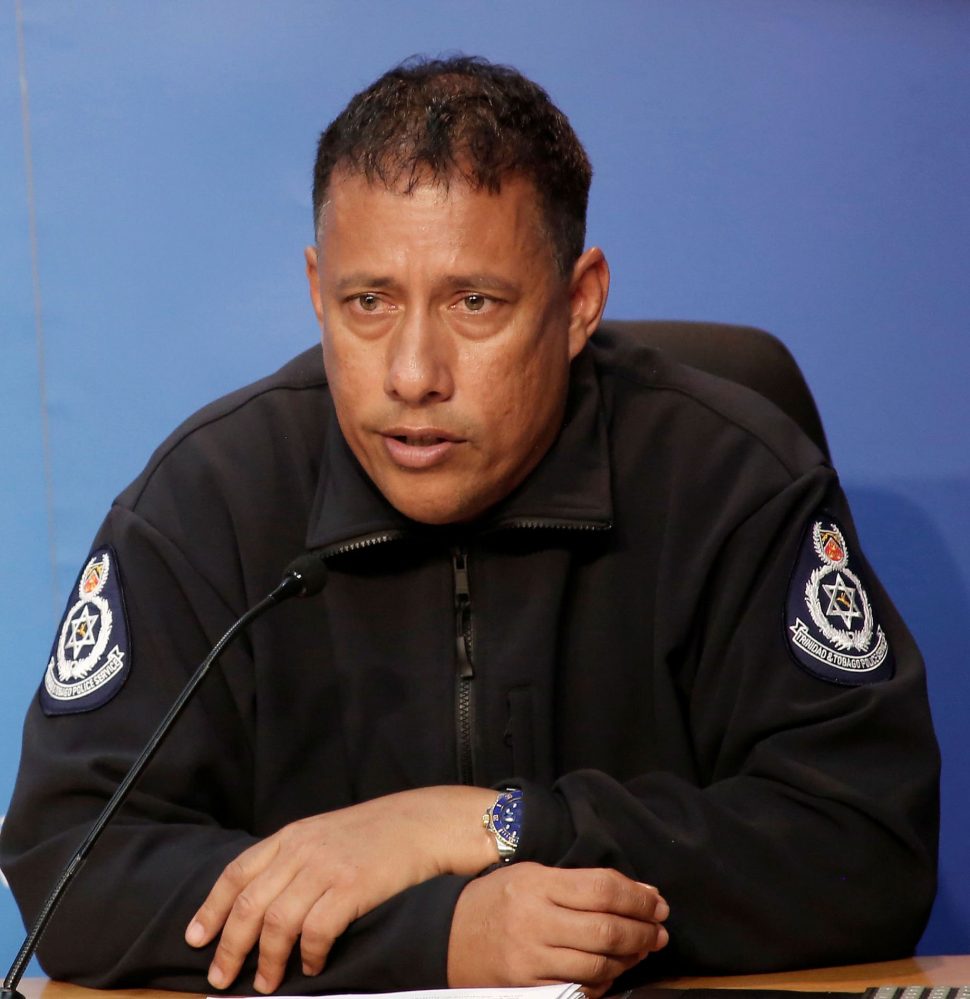(Trinidad Guardian) Under Gary Griffith’s tenure as Police Commissioner so far, an estimated 485 people have been murdered.
In this country’s history, the murder toll in a calendar year has only ever crossed the 475 mark on four occasions.
And there are still more than two weeks left until Griffith celebrates his first anniversary as Police Commissioner.
With the current rate of bloodletting taking place in the country, it is not improbable that 500 murders can be recorded under Griffith’s first year in office.
Griffith took the oath of office as this country’s substantive Police Commissioner on August 17 last year when the murder toll was around 345.
Last year, eventually ended with 517 murders, according to statistics from the Trinidad and Tobago Police Services’ Crime and Problem Analysis (CAPA) branch.
It is this country’s second-highest murder toll ever.
Speaking at an Independence Day function days after he was officially sworn into office Griffith gave himself a deadline date for making a difference in the crime fight. But as that deadline date draws nearer it seems that using the murder toll, the traditional barometer to gauge the success of a Police Commissioner, that Griffith is falling short.
For a country with Trinidad and Tobago’s population size, our annual murder toll should be around 250, according to international benchmarks.
However, T&T surpassed that figure within the first six months of the year.
The country surpassed the 300 mark this week.
And it is plausible that T&T will surpass the unfortunate milestone of 400 murders at the end of this calendar year.
Since 2013 the country’s murder toll has consistently surpassed that 400 figure.
But 2019 was supposed to have been different.
This year was the first time that Griffith was starting the year off as this country’s Police Commissioner.
Griffith came into office with a flood of public support and expectation.
For many, Griffith, 54, is something of a superhero who has demonstrated his willingness to take on the criminals.
There have been some positive changes in crime under Griffith’s tenure.
For the first six months of 2019, CAPA statistics state that there were 5474 crimes reported to the TTPS.
For the comparative period in 2018 there were 6,944 crimes reported.
There is no denying that Griffith has a difficult job.
In fact, it may arguably be the most difficult job in this country.
“After many years of observation, research, conferences, etc, I think being commissioner of police in a democracy is the hardest job, especially in this lawless, disorderly multi-ethnic country”, criminologist and former PSC chairman Professor Ramesh Deosaran has said.
And according to Griffith, his job is being made ever more difficult as the State is funding gangs and facilitating the killings.
But how does Griffith compare to other individuals who also held the reins of the TTPS.
Before Griffith, Stephen Williams acted as Police Commissioner.
Williams, a substantive Deputy Police Commissioner in the TTPS, was appointed acting top cop in August 2012.
The murder toll at the end of 2012 was 379.
In 2013 when Williams started the year as Police Commissioner the murder toll after six months was 186.
The murder toll at the end of 2013 was eventually 408.
Williams, a career police with 37 years service in the TTPS, was circumspect with his dealing with the media and the public.
Williams, an attorney, acted as police commissioner for six years.
In 2008 he was nominated for the post of police commissioner but his nomination was rejected by the Parliament.
He was again rejected by Parliament in favour of Griffith in 2018.
Before Griffith, Canadian Dwayne Gibbs was this country’s last substantive police commissioner.
Gibbs, 54, a retired Chief Superintendent of Police in Alberta, Canada and held a doctorate in management has his nomination for police commissioner approved by the Parliament on July 2, 2010.
Gibbs introduced 21st Century Policing but resigned with more than a year of his contract remaining.
Gibbs was the Police Commissioner when T&T had its State of Emergency in 2011.
The murder toll at the end of 2011 was 352.
In 2008 Trevor Paul, was the police commissioner, and according to police statistics, 57 murders were recorded in June of that year making it the bloodiest month in this country’s history at that time.
The murder toll had already crossed the 250-mark at that time.
Deputy police commissioner James Philbert who was the most senior police officer in the Trinidad and Tobago Police Service (TTPS) following Paul’s retirement was given the reins to act as top cop.
Paul’s retirement came while the Police Service Commission’s (PSC) search for a substantive police commissioner was still in progress.
Philbert was among the top five recommended candidates along with Senior Supt Stephen Williams; retired New York Police Department captain Louis Vega, and Assistant Police Commissioner Fitzroy Frederick.
Williams’ name was sent to the President as the PSC’s nomination for the top cop post.
However, following a debate in Parliament on July 4, Williams’ nomination was not accepted.
The PSC appointed Philbert to act as commissioner as the search for a substantive commissioner was resumed.
When Philbert took over as CoP the murder toll stood at 269.
For the remainder of that year, 278 more murders were committed, which resulted in the year 2008 ending with a record high of 547 murders.










